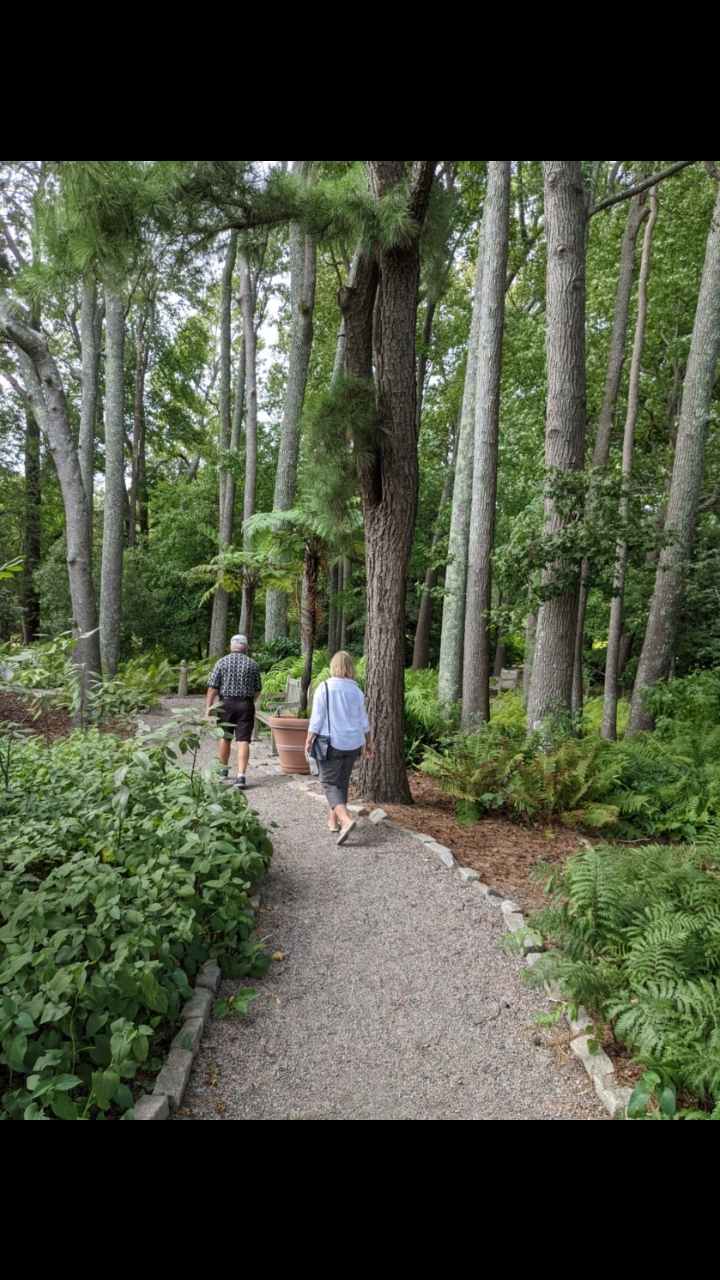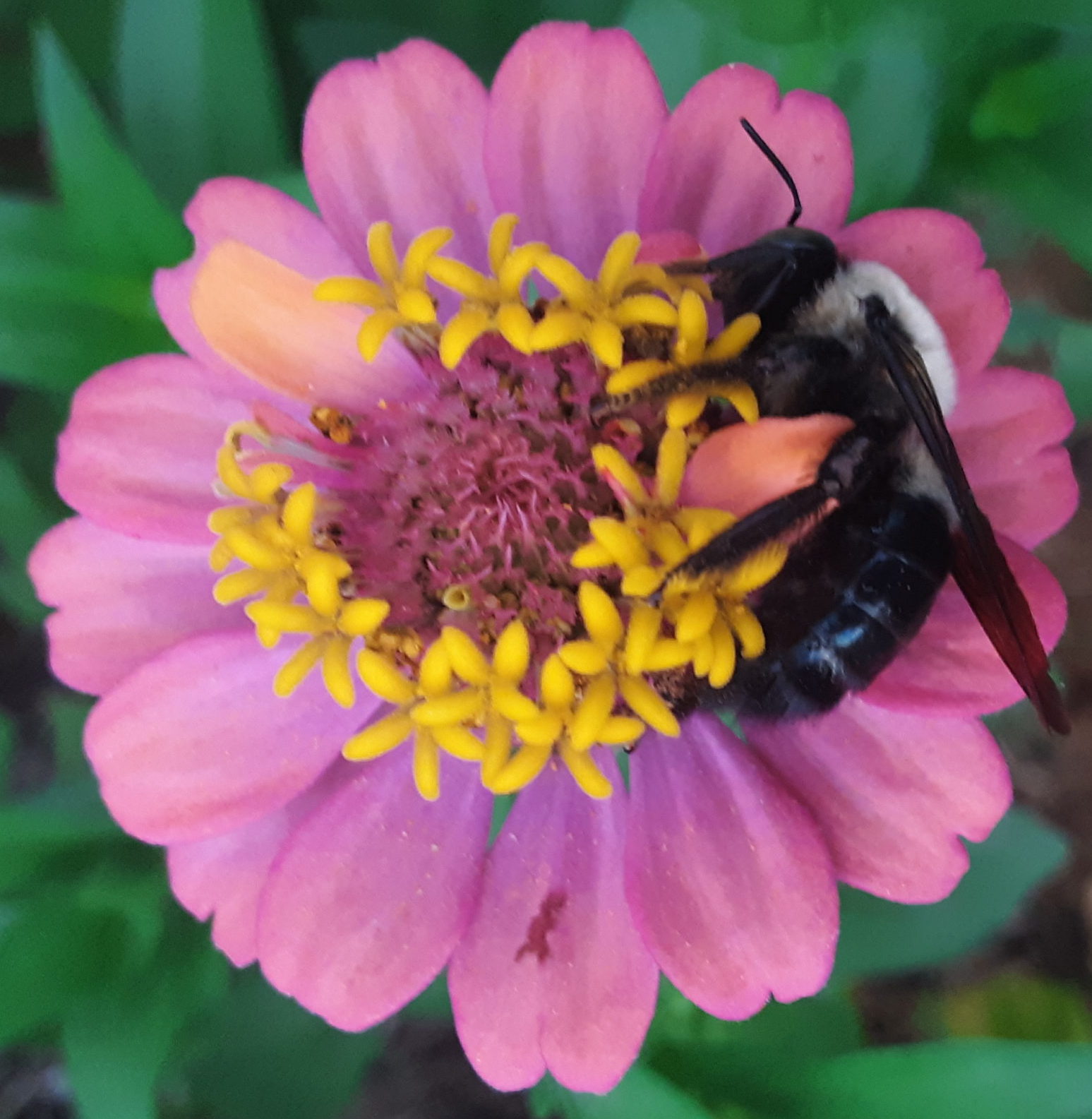Gardener’s best comfort and protection tips

Not long ago, I asked some of my favorite gardeners to share their best tips and tricks for staying comfortable in the garden, and for working outside in general. Even though I have been gardening for almost thirty years, I was delighted to learn so many new things. My only regret is that I didn’t have this same list 25 years ago. In no particular order, I offer these suggestions in hopes they will help you enjoy gardening for years to come:
Temperature control
Heat: Use a cooling rag such as Ergodyne for the hot days. Wide-brimmed hats and sunglasses, peppermint oil applied directly to the skin can act as “outdoor a/c” as well as drinking lots of water and peppermint tea. Use a portable beach umbrella, or work in the shade when the sun is hot overhead.
Cold: For sub-freezing days, invest in hand and boot warmers. Heat packs (such as Hot Hands) cost $1-2 each and can make a cold morning tolerable. Warm thermal underwear, socks made of silk or brands such as SmartWool, insulated coveralls and overalls by brands such as Carharrt all give extra protection against frigid winds.
Skin
Once again, a beach umbrella can lower the temperature AND protect your skin’s exposure to the sun. Hats with wide brims, with a brim and chin strap, sun or safety glasses to protect your eyes from flying debris or when string-trimming or pruning is essential. Jojoba oil or comfrey salve can soothe sun or wind-chapped skin before or after gardening. If you make contact with poison ivy, wipe the affected area down with rubbing alcohol, hand sanitizer or Tec-Nu lotion within ten minutes to reduce the chance for a reaction. (The alcohol in will absorb the oils and reduce allergic reaction).
Insects
Insect repellent with citronella or catmint will reduce incidences of mosquito and other insect bites, including ticks. Wearing white socks, white shoes, long plants, tucking pants into socks and spraying shoes and socks with tea tree oil, neem oil, or insect repellent with DEET will greatly reduce tick bites. (Just be sure to remove shoes and socks when you walk in a house to avoid tracking DEET-across floors, etc.)
Clothes
Once again: layer,layer,layer your clothes! When dressing for uncertain weather and long hours, wear a tanktop, light t-shirt, long sleeve short, flannel or hoodie, vest with pockets for phones and tools, light jacket,and and a winter jacket. Aforementioned-silk or wool underclothes in extreme/cold weather, and extra socks, shoes and clothes (especially in case of rain) are always good ideas.
Stretch and Lift
Yoga poses for bending. digging and lifting: Cat-Cow, Child’s Pose, Downward Dog, Forward Bend, Mountain Pose, Upward Dog, Tree Pose, Side-bend, Corpse pose/look at the clouds and trees. When preparing for moving many heavy objects/plants: begin lifting small weights a few weeks in advance, take breaks and ask for help!
Do NOT: bend over often, stoop too long, or kneel on hard ground for too long with out a kneeling pad. Try to change gardening positions every few minutes for body economy. It might slow you down a minute or two in the garden, but you will be able to garden longer just that day, and for longer in your lifetime.
Food/Drink
Have water(lots of it) on hand and consider adding electrolytes to your water on very hot days of long exertion. Alternately, bring a thermos with hot tea or just drink hot water (to weatherproof yourself!). Easy snacks like nuts, granola bars, and fruit go well with gardening and are easy to carry and enjoy outside.
Other pests
Dogs will scare garden pests such as deer, groundhogs, rabbits, possum, and some snakes, as will cats. Closed-toe footwear protect you from snakes, and other insects such as ticks. Singing in the garden or conversation with friends will make vibrations that may keep pests away more, and will help make work go quickly.
Other strategies
When friends aren’t available to help in the garden, podcasts and audio books from free sources such as https://www.overdrive.com/apps/libby can help make menial tasks more interesting, as can leaning to identify the calls of various insects, birds and frogs.
Succession planting spreads work out over a longer period (as well as harvests) so you aren’t overwhelmed just a few weeks a year (usually the same weeks everyone wants to be on vacation).
Raised beds and containers (if you have accessibility issues or dislike weeding) can make gardening more fun, but you will likely have to water more frequently.
When using a new tool, go slowly, and share the task, especially if it uses muscles you don’t normally use, or its really hot or cold outside.
